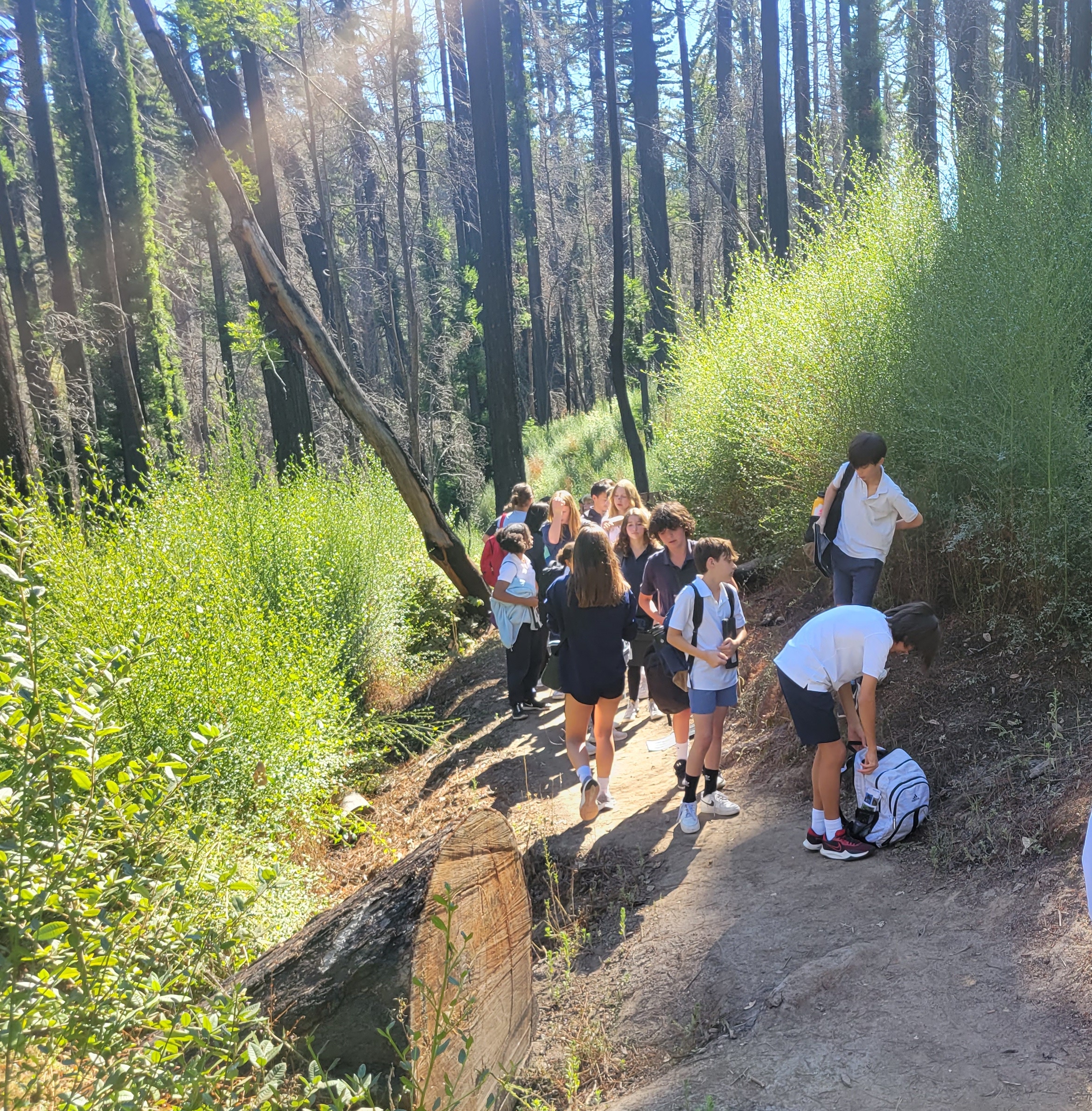Click here to listen to Episode 53: Burning Questions
Serious scientific research is taking place – in our 9th grade classroom. Biochemistry teacher Mike Judge used the recent regional smoky air event from a few weeks ago as an opportunity to collect data about the impact of wildfire smoke on the urban heat island effect. Cities, with their higher levels of concrete and buildings and less green spaces, experience far greater extremes of heat than more rural areas. When the smoke arrived, Mike realized that studies had not been done on the impact of wildfire smoke on the urban heat island effect and saw an opportunity for students to contribute to the scientific record.
To be specific, students recorded temperatures of different surfaces over several days – parts of a parking meter, a sign, the sidewalk, a statute – found around our campus at Adobe World Headquarters over several days. Different days had different air quality readings, and students hypothesized that poor air quality due to wildfire smoke would lower surface temperatures. The initial analysis of the data set suggests that their hypothesis was right.
Our students understanding of the science at the heart of this project – hydrogen bonding networks and kinetic energy – will undoubtedly be deeper and more meaningful than the equivalent understanding that students would receive in a class where they read the book, talked about it in class, and then took a test where they shared back what the teacher told them. And, our students have also now been introduced to some pretty sophisticated data analysis, including learning how to determine if the results are scientifically significant. Not bad for the first 6 weeks of 9th grade.
Middle School science teacher Brian Ravizza has also brought the science of wildfires into his classroom. Last week the 7th graders visited the site of the CZU Lightning Complex Fire in Big Basin State Park from August 2020. Many students shared memories from the fire, including how their own homes and lives were impacted. They also learned what at first seems like a surprising truth – fire can be a healthy part of the ecosystem, even if it is devastating to us. Like our 9th graders, these students are going to have a much deeper – and more felt – connection to what they are learning.
It’s just another example of how learning at Hillbrook is challenging, engaging, and relevant. And, it goes to show that you don’t need to be an adult to be a scientist. Just ask the 9th graders who are about to publish their first scientific papers.
